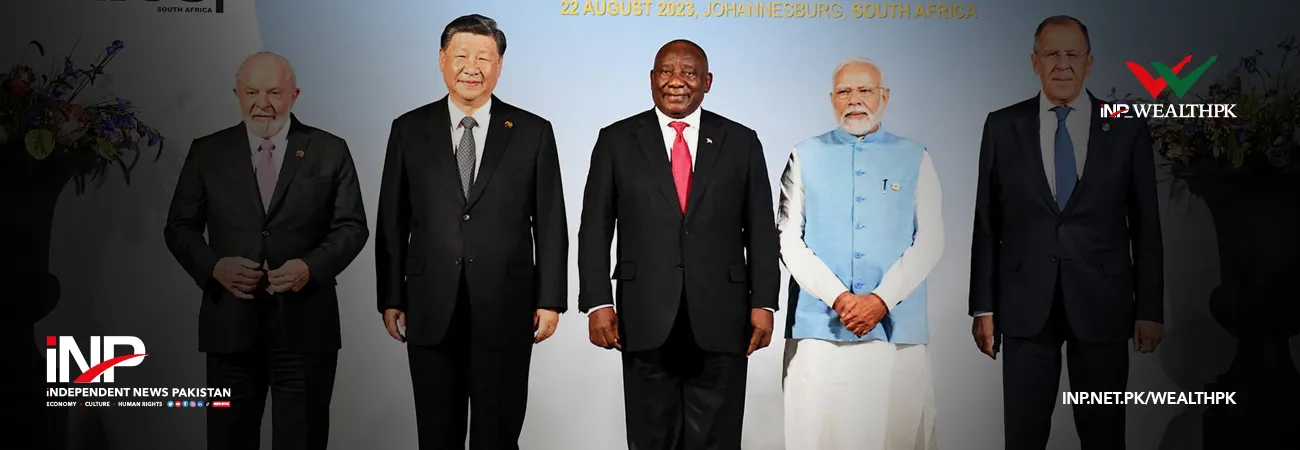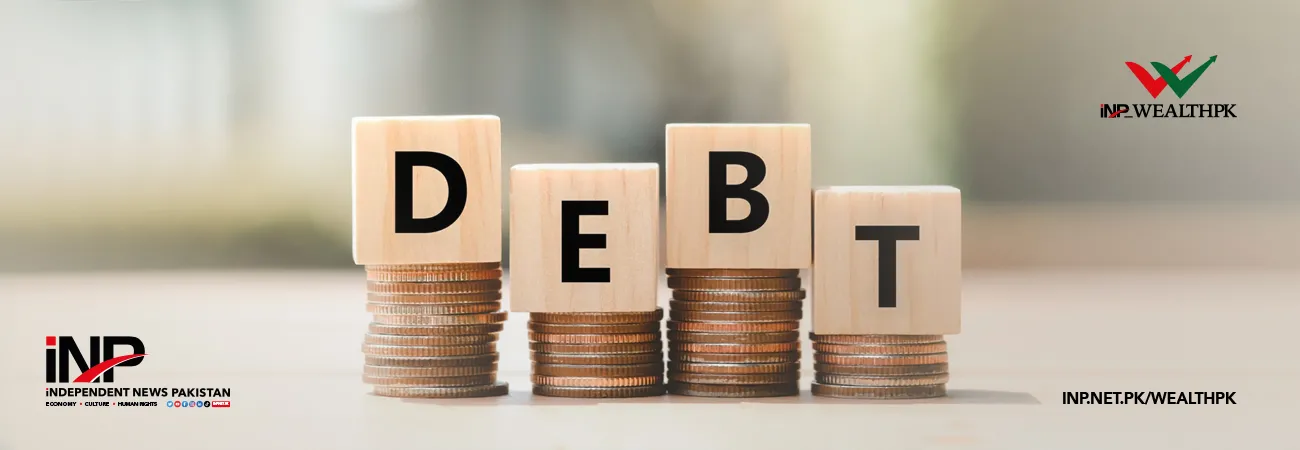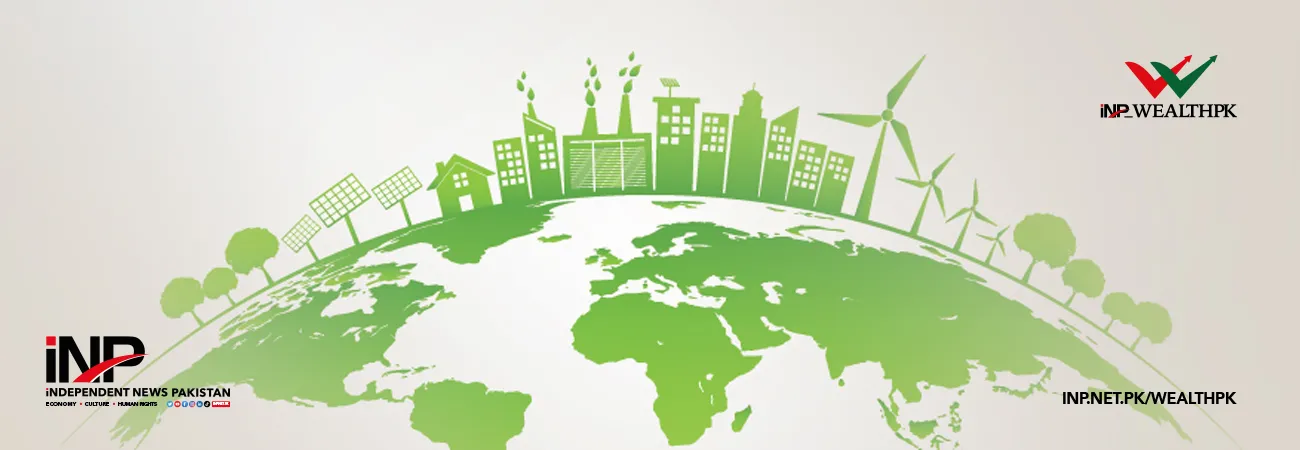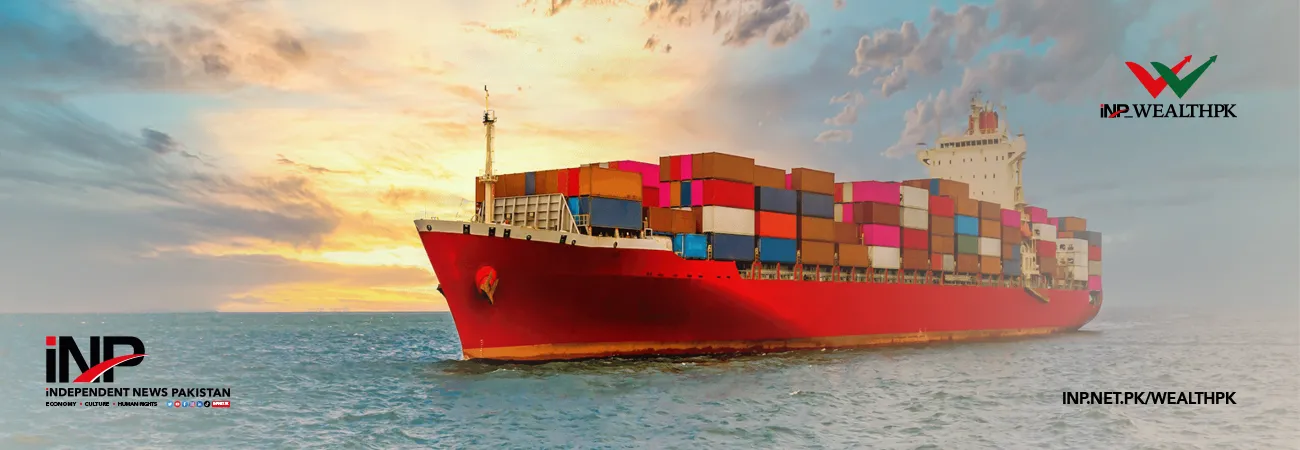INP-WealthPk
Ayesha Mudassar
BRICS has emerged as a powerful grouping of emerging economies in the 21st century. Comprising Brazil, Russia, India, China and South Africa, it has increasingly become the mortar that supports the global economy. Recently, the group leaders attended the 15th BRICS Summit “BRICS and Africa: Partnership for Mutually Accelerated Growth, Sustainable Development, and Inclusive Multilateralism,” hosted at the Sandton Convention Centre in Johannesburg, South Africa. The Summit announced the admission of six new members – Iran, Saudi Arabia, Egypt, Argentina, the UAE, and Ethiopia – highlighting its expanding economic strength in the international arena. Owing to their large populations, growing economies and increasing influence in international affairs, the BRICS countries have the potential to become significant players in the global economy.
According to a report by the United Nations Conference on Trade and Development (UNCTAD), the BRICS currently represents 42% of the world’s population, 18% of global exports, and a combined Gross Domestic Product (GDP) of $26 trillion. The UNCTAD, which tracks trade and investment in developing countries, said that BRICS has seen a more than four-fold increase in their annual FDI inflows, from $84 billion in 2001 to $355 billion in 2021. “Their share in global FDI inflows also doubled from 11% in 2001 to 22% in 2021,” the report indicated. As per the International Monetary Fund, the BRICS nations are expected to account for 32.1% of global GDP in 2023, more than the G7’s share of 29.9%.
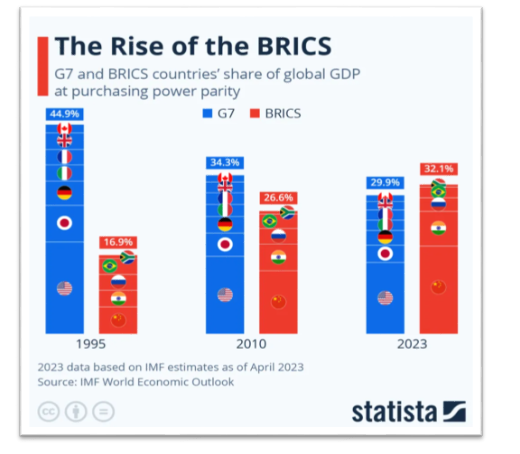
The partner countries are successfully strengthening cooperation in various areas such as diversification of supply chains, de-dollarisation, digital economy, support for small and medium-sized businesses, and fair technology transfer. The term was initially coined in 2001 by British economist Jim O'Neill and the group was organised around the goal of enhancing consultation and coordination among the five major developing countries to transform the current Western-led world order into a multipolar system where developing countries have more influence in line with their shares of the global economy.
The Western-led economic system has dominated the world for decades, thanks to the influence of two US-based global lenders: the International Monetary Fund and the World Bank. Sometimes, these lenders set harsh conditions that are hard to implement. However, several nations are now realising the potential of BRICS to challenge this financial hegemony. BRICS has been following a forward-looking strategic course that meets the aspirations of a significant portion of the international community. Through collective working and considering each other's interests, the most urgent issues on the global and regional agendas can be effectively tackled.
Credit: INP-WealthPk



